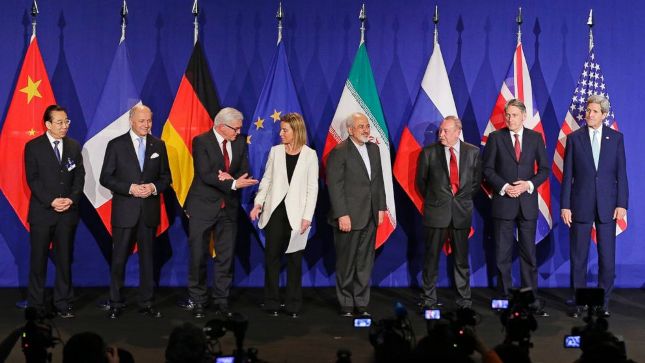Iran Nuclear Deal Finalized
The landmark Iran nuclear deal was finalized recently after twenty months of negotiations. Aside from reshaping the relations of Iran with Western powers, the deal may also have implications on the volatile situation in the Middle East.
The final meeting between Iranian representatives and representatives from the West was held in Vienna. The deal was praised by President Barack Obama, who considers the deal as the focal point of the foreign policy of his administration.
He said a comprehensive deal was reached with Iran that prevents it from acquiring nuclear weapons after around two years of negotiations. He added that the “deal is not built on trust” since it is “built on verification.” The deal was also praised by President Hassan Rouhani of Iran.
President Rouhani addressed the people of Iran saying a “good agreement” was reached. The deal aims to limit nuclear activities of Iran in exchange for relief from sanctions imposed on the country. The Iran nuclear deal also limits the nuclear program of the Middle Eastern country to peaceful purposes.
A roadmap was signed by International Atomic Energy Agency chief Yukiya Amano with the government of Iran to clarify “past and present outstanding issues” in connection to its nuclear program. The deal entails a reduction in the number of centrifuges of Iran and the banning of enrichment in critical facilities. It also limits any research and development work on uranium to the Natanz facility.
Spent fuel will be shipped out of Iran while IAEA inspectors will be given access to the nuclear facilities in Iran. The monitoring of centrifuge production and storage as well as uranium mining will continue for twenty years. With the deal, Iran will take at least one year before it can build its first nuclear bomb, according to estimates by the US.
However, the Iran nuclear deal is not yet done since it may have to deal with opposition among Republicans in the US Congress. Prime Minister Benjamin Netanyahu of Israel may also oppose the deal as he has been against the negotiations since the beginning.
Netanyahu described the agreement as a “historic mistake for the world.” He added that numerous concessions were made in areas that would have prevented Iran from making its first nuclear weapon.
When willing to make a deal at any cost, this is the result. From early reports, we can see that the deal is a historic mistake.
— בנימין נתניהו (@netanyahu) July 14, 2015
On the other hand, Obama called on Netanyahu to discuss the Iran nuclear deal. A statement from the White House gave assurances to the Israeli prime minister that the Obama administration is still committed to ensure the security of Israel. It indicated that the agreement will not diminish concerns on the support of Iran for terrorism and threats against Israel. Opponents in the US Congress will have sixty days to look into the details of the Iran nuclear deal, and challenge the position of the Obama administration. The deal will also require support from Ayatollah Ali Khamenei, the supreme leader of Iran, in order to ward off objections from hardliners. Rouhani indicated on Twitter that the deal shows “constructive engagement works” and it encourages the emergence of new horizons due to the resolution of an “unnecessary crisis.”
#IranDeal shows constructive engagement works. With this unnecessary crisis resolved, new horizons emerge with a focus on shared challenges.
— Hassan Rouhani (@HassanRouhani) July 14, 2015
The Iran nuclear deal was praised by Iranian Foreign Minister Mohammad Javad Zarif and US Secretary of State John Kerry. Zarif described the deal as a “historic moment” but it is “not perfect.” For his part, Kerry said it was “the good deal” they were aiming to get.
Kerry also praised Obama for his “courage to launch” the process even though “many thought the objective was impossible.” Federica Mogherini, EU foreign policy head, said Iran will not seek to “develop or acquire nuclear weapons.” Western leaders supported the Iran nuclear deal since it was the best way in preventing Iran from developing nuclear weapons. On the other hand, Iran is looking forward to the removal of economic sanctions that have affected its economy.
The Iran nuclear deal took nearly two years to be finalized. Representatives from the United States, France, the UK, Russia, Germany, and China worked with Iran since 2013. The talks officially started after the election of Rouhani, who is considered as a reformer and appeared to be open to better relations with the West.
An interim deal was reached in November 2013, which offered Iran some relief from sanctions in exchange for limitations on its nuclear program. Another breakthrough was reached three months ago as a framework deal was established in preparation for the final agreement. The talks for a comprehensive deal went past its June 30 deadline before the Iran nuclear deal was finalized on Tuesday.
